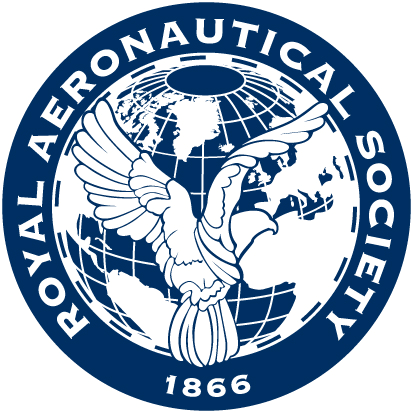 Managing Director of Copernicus Technology Ltd (CTL), Giles Huby, presented CTL’s latest academic paper at the Royal Aeronautical Society's Airworthiness & Maintenance annual conference on the 16th Sept at Cranfield University, alongside fellow speakers including Mr Mick Adams (Maintenance Director of Monarch Air), Air-Vice Marshal Nick Kurth CBE (Senior Engineer Officer in the RAF’s Air Command) and Dr Bill Johnson of the FAA.
Managing Director of Copernicus Technology Ltd (CTL), Giles Huby, presented CTL’s latest academic paper at the Royal Aeronautical Society's Airworthiness & Maintenance annual conference on the 16th Sept at Cranfield University, alongside fellow speakers including Mr Mick Adams (Maintenance Director of Monarch Air), Air-Vice Marshal Nick Kurth CBE (Senior Engineer Officer in the RAF’s Air Command) and Dr Bill Johnson of the FAA.
Giles' presentation was extremely well received and generated a lively discussion during the subsequent Panel Q&A session, which was facilitated by Jim Rainbow OBE, Chairman of the RAeS Airworthiness & Maintenance Specialist Group. Questions ranged from the issues of using maintenance data to inform fault diagnosis and to provide feedback into the design organisation, to the differences in approach in detecting the root causes of intermittent faults in the military vs civil sectors, to future developments in applying such technology to Systems Prognostics.
Managing Director of Copernicus Technology Ltd (CTL), Giles Huby, presented CTL’s latest academic paper at the Royal Aeronautical Society's Airworthiness & Maintenance annual conference on the 16th Sept at Cranfield University, alongside fellow speakers including Mr Mick Adams (Maintenance Director of Monarch Air), Air-Vice Marshal Nick Kurth CBE (Senior Engineer Officer in the RAF’s Air Command) and Dr Bill Johnson of the FAA.
Giles' presentation was extremely well received and generated a lively discussion during the subsequent Panel Q&A session, which was facilitated by Jim Rainbow OBE, Chairman of the RAeS Airworthiness & Maintenance Specialist Group. Questions ranged from the issues of using maintenance data to inform fault diagnosis and to provide feedback into the design organisation, to the differences in approach in detecting the root causes of intermittent faults in the military vs civil sectors, to future developments in applying such technology to Systems Prognostics.
It became apparent throughout the presentations and discussions of the day that there were 2 significant themes emerging. The first was the obvious degree of uncertainty surrounding the eventual impact of the UK MOD's Strategic Defence & Security Review (SDSR) on the Military Air Environment - which capabilities will remain and how might the MOD improve the affordability of their support. AVM Kurth stated that there would need to be an even greater joint effort with industry to introduce 'game changing' innovation, in this context.
The second emergent theme that CTL detected was the paucity of genuinely new innovation being talked about. The majority of the presentations talked of reinvigorated approaches to 'working smarter' by smarter use of communications, of knowledge and of people's experience. Perhaps the real innovation of the moment is to go back to basics and focus on effective 2-way communications, forward planning and sound engineering common sense?
This is an approach that CTL wholeheartedly endorse: focus on root causes and focus on knowledge, but not on norms. Overall this was a fascinating conference and an excellent opportunity to raise the awareness of the real cost impact on maintenance support caused by intermittent faults and NFF problems, and of how to tackle it. If you want to find out how to do this then contact us now:
This email address is being protected from spambots. You need JavaScript enabled to view it..
 Managing Director of Copernicus Technology Ltd (CTL), Giles Huby, presented CTL’s latest academic paper at the Royal Aeronautical Society's Airworthiness & Maintenance annual conference on the 16th Sept at Cranfield University, alongside fellow speakers including Mr Mick Adams (Maintenance Director of Monarch Air), Air-Vice Marshal Nick Kurth CBE (Senior Engineer Officer in the RAF’s Air Command) and Dr Bill Johnson of the FAA.
Managing Director of Copernicus Technology Ltd (CTL), Giles Huby, presented CTL’s latest academic paper at the Royal Aeronautical Society's Airworthiness & Maintenance annual conference on the 16th Sept at Cranfield University, alongside fellow speakers including Mr Mick Adams (Maintenance Director of Monarch Air), Air-Vice Marshal Nick Kurth CBE (Senior Engineer Officer in the RAF’s Air Command) and Dr Bill Johnson of the FAA.